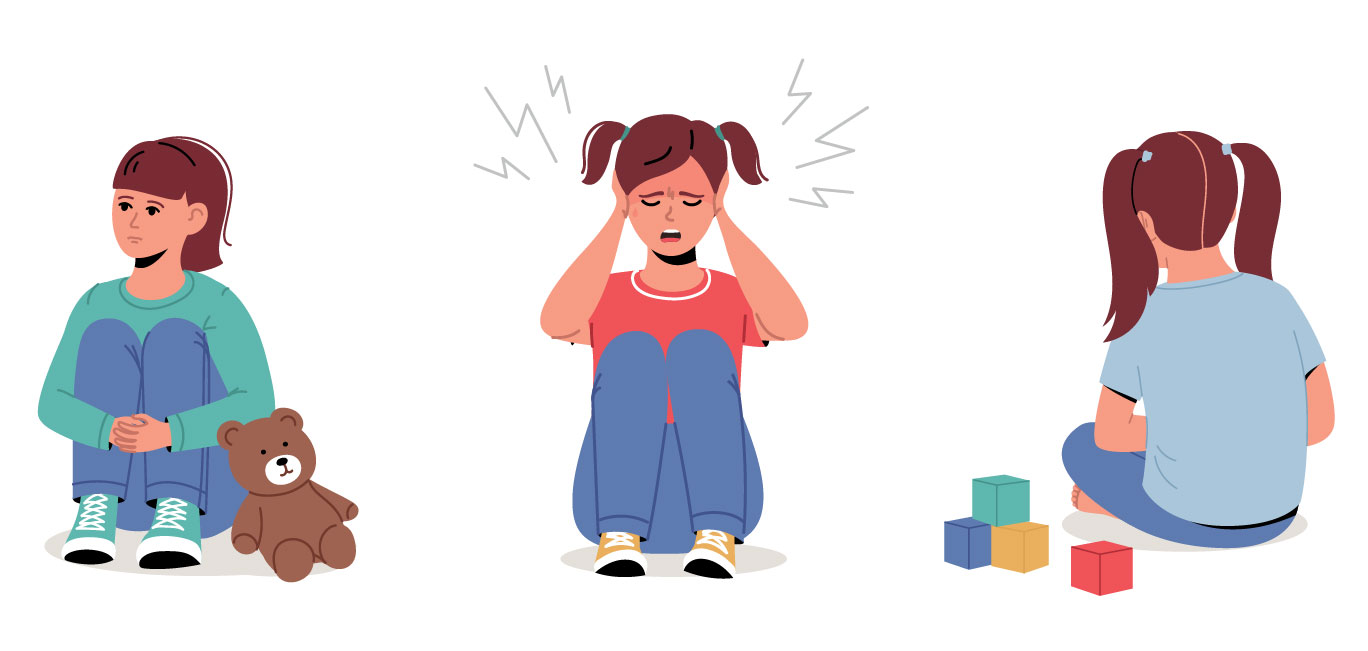
Each child is unique and progresses through individual developmental timelines, with variations in milestones like speech and walking. Some begin speaking at a very early age, while others may not start until they are five years old. Similarly, some children take their first steps quite soon, while others might take more time.
Parents are often concerned about their children’s development and worried when there are delays. Indeed, it is necessary to watch out for developmental delays, eve though it is not always serious. In some case, however, there could be a possibility of autism spectrum disorder (ASD). Gaining a deeper understanding of ASD in children and being able to identify its early signs can play a crucial role in providing timely intervention and support.
What is autism?
Autism or Autism Spectrum Disorder (ASD) is a complex neurological condition that is different for each person. But in general, it affects how a child talks and plays with their family, friends, and teachers. It influences their thinking and acting patterns as well. Sometimes, it makes them do things over and over or in a unique way.
Early signs of autism
Akansha Kothari, counsellor and child psychologist in Bengaluru emphasises, “While children develop at their own pace, there are certain behaviours that may serve as early indicators of autism. It is important to remember that these signs can vary from child to child.”
Joy Johnson, a child psychologist from Mangaluru says that one of the earliest signs is when a child does not respond to their name, typically around the age of one. “Behaviours such as walking on toes, hand-flapping, spinning objects, and limited eye contact can be indicative of autism,” she suggests.
Here are some early signs:
- Not responding to name: A child not responding to their name, particularly around 5 to 7 months, might be a red flag. In typical development, most children pick up their names and turn their heads in response.
- Avoidance of eye contact: Children with autism may avoid making eye contact with unfamiliar people. However, they can engage in eye contact when they feel comfortable or are not feeling shy.
- Limited social smiles: Children with autism may not smile when you smile at them, especially if they are not comfortable with or do not know you well.
- Sensitivity to sensory stimuli: Some children with autism can become very upset by certain tastes, smells, sounds or textures. For children with autism, it is sometimes difficult to mentally adapt to new situations. So, a predictable and rigid routine is very helpful for them. This means that if they have a rigid routine, where sensory information around them is predictable, it helps them a lot. However, not all children with autism might require a rigid routine, even if they might struggle with sensory sensitivities.
- Repetitive movements: Repetitive behaviours such as hand-flapping, finger-flicking, or body-rocking can be observed in children with autism. While every child exhibits some repetitive movements out of boredom, this behaviour might be more pronounced in children with autism.
- Speech and language development: Children with autism may not develop language skills at the same pace as their peers. They might not use sentences and vocabulary as extensively, but they often excel in rote memory. Rote memory is like learning something by heart, where one memorises facts, numbers, or information through repetition without necessarily understanding the meaning or context.
- Pretend play: Autistic children may not engage in pretend play to the same extent as their peers, though they do eventually catch up.
- Repetition of phrases: Repeating the same phrases is a common behaviour in children with autism.
- Social and communication challenges: The social and communication challenges faced by children with autism can affect their daily lives.
- Absence of peer group: Many children with autism lack a friends’ circle and have limited interest in social interaction with anyone other than their caregivers.
- Social acceptance: Children with autism may struggle to conform to social norms, making it challenging for them to integrate themselves with their peers.
- Daily living skills: Some children with autism may struggle with basic daily living skills and may not achieve independence from their parents for an extended period.
- Speech and language development: Delayed development of speech and language skills can hinder effective communication with others, including family and caregivers.
- Interpreting nonverbal cues: Understanding nonverbal cues such as gestures and body language can be a challenge for children with autism, making interaction with others more complex.
- Role of early intervention
Johnson says early intervention can improve outcomes for children with ASD. It can help them reach their full potential. “The right intervention and coping tools tailored to one’s needs can make a huge difference in one’s life. It not only improves the quality of life, but it also allows one to be independent,” she points out.
Importance of a comprehensive assessment
One commonly used tool for identifying autism in India is the Indian Scale for Identification of Autism. It is a well-established assessment with strong psychometric properties. Today, there is a wide range of assessments available. A therapist or child psychologist can decide which ones are best suited to the child they need to assess.
Sensory sensitivities and repetitive behaviours
Johnson says that sensory sensitivities and repetitive behaviours are common in children with autism. She explains that these behaviours are often related to sensory experiences. Children can be either sensory seekers or sensory avoidants. Some examples include:
- Sensory sensitivities: Children may dislike certain textures in clothing, avoid being touched, or have aversions to certain food textures.
- Repetitive behaviours: These can vary widely and may include behaviours like humming, hand-flapping, rocking, jumping, spinning, or twirling.
Johnson says, “It is important to allow these behaviours if they do not harm the child, as they can help regulate and calm them. If the behaviour is harmful, it crucial to identify alternatives and ensure a safe environment.”
Role of parents and caregivers
Early intervention, effective therapies, and a supportive environment can empower them to reach their full potential and lead fulfilling lives. Parents and caregivers can play a vital role by following their child’s cues, reducing meltdowns, and respecting their child’s boundaries. Communication with teachers and professionals is crucial for getting the right support and ensuring that children with autism have the best opportunities for growth and development. “Follow your child’s lead to find cues, and this can reduce meltdowns and if your child says ‘no’, do not force him/her,” says Johnson.
Also, read: Early signs of autism in toddlers

















